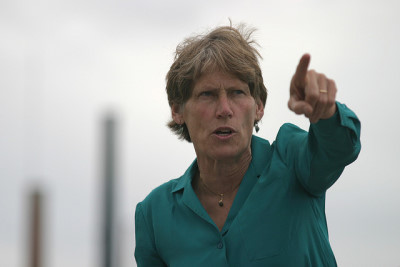In ejecting Leslie Glustrom from participating as an intervenor in cases pending at the Public Utilities Commission, the Commission under its new Chair, Joshua Epel, has upended 40 years of precedent. The assertion of the PUC spokesperson in the Daily Camera article on September 18 that only those with a “substantial monetary interest…in the outcome of the docket” have a right to intervene is contrary to Colorado law.
In C.R.S. 40-6-109(1), standing to intervene in PUC dockets is granted to anyone who “will be interested in or affected by any order that may be made by the commission in such proceeding.” Note the absence of a requirement that the interest be a monetary interest, much less a “substantial” monetary interest.
The Supreme Court held that this section contemplates two types of intervenors, (a) those which the commission may permit to intervene, and (b) those who will be interested in or affected by any order that the commission may make. DeLue v. Pub. Utils. Comm’n, 169 Colo. 159, 454 P.2d 939, cert. denied, 396 U.S. 956, 90 S. Ct. 428, 24 L.Ed.2d 421 (1969). The PUC may decide that permissive intervention can be limited to those with a substantial monetary interest in the docket. However, they are flouting forty years of precedent in saying that a watchdog, as Leslie Glustrom has been, can be excluded from the proceedings even though she is interested in and will be affected by the orders of the Commission.
In another 1969 Colorado Supreme Court case, the Court held that in providing for “hearings”, the general assembly contemplated proceedings, judicial in character, with participation by all parties who might be interested in or affected by any order that may be made by the public utilities commission. Pub. Utils. Comm’n v. Northwest Water Corp., 168 Colo. 154, 451 P.2d 266 (1969).
Here are two important things that Leslie Glustrom has uncovered in her participation in PUC dockets over the last five years—things that likely would not have been discovered but for the fact that she was there, asking questions that no one else was:
- She uncovered through persistence, analysis and discovery the fact that Xcel was asking ratepayers to pay for $150,000-$200,000 worth of food, liquor and entertainment expenses as “Office Supplies.” This included dinners at two of Boulder’s finest restaurants: Frasca and the Flagstaff House. Just one of those bills for the Board of Directors dinner was over $15,000. Once uncovered, the request by Xcel to have ratepayers pick up the tab for these entertainment expenses was withdrawn.
- Ms. Glustrom has focused the attention of ratepayers, the public and PUC staff on the important impact of escalating coal prices in analyzing least cost alternatives. Xcel was paying $1.18 per MMBTU for coal in 2008. At that time, their PUC filings projected that coal costs would increase to $1.52 per MMBTU by 2035–a very slow and gradual increase. Actually, Xcel started to pay $1.52 in 2010–Xcel’s projection of coal cost increases was off, in other words, by a quarter century. Ms. Glustrom’s clarifying this truth—something that had been lost on other close observers of the PUC—has sharpened the thinking of everyone involved in integrated resource planning before the PUC. This would not have happened but for the participation of Leslie Glustrom in numerous dockets at the Commission.
In urban planning, more eyes on the street make it safer for everyone. In regulating Investor Owned Utilities, more eyes on the submissions of regulated utilities will provide environmental and economic benefits for all of the people and businesses who depend on our public institutions to regulate utilities with the public interest firmly in mind.
The decision to strip Leslie of her status as intervenor at the PUC is contrary to the public interest and the interest of ratepayers. This unfortunate decision must be reversed.




 (16 votes, average: 4.13 out of 5)
(16 votes, average: 4.13 out of 5)